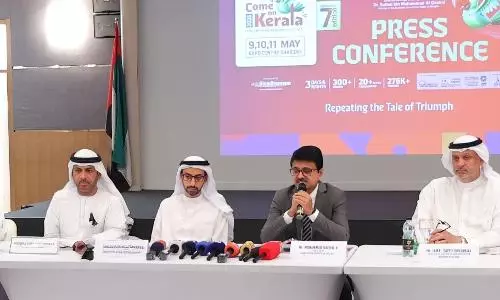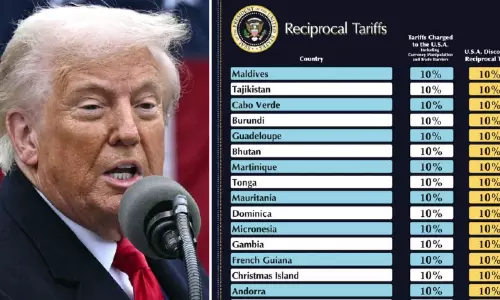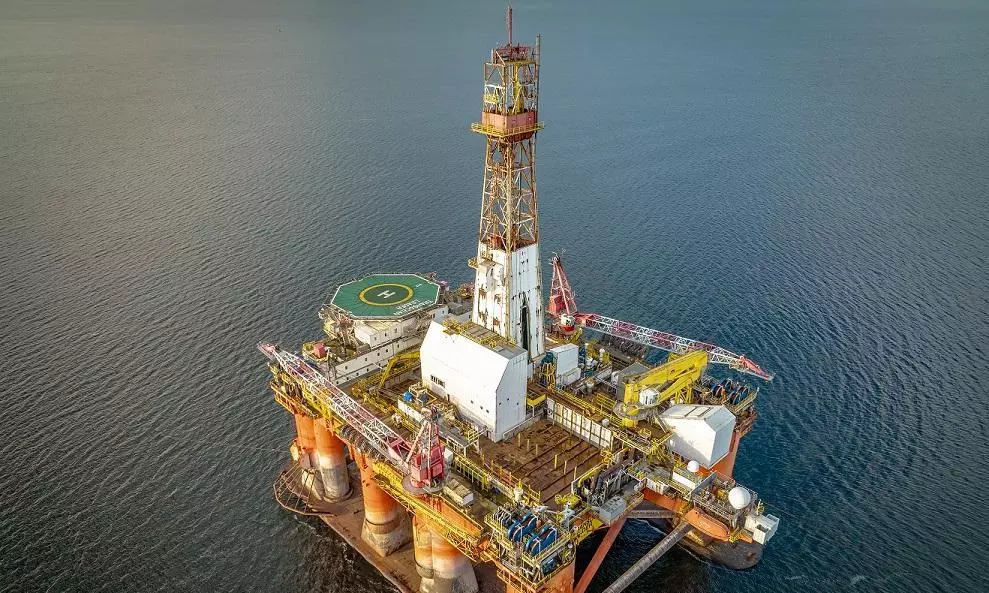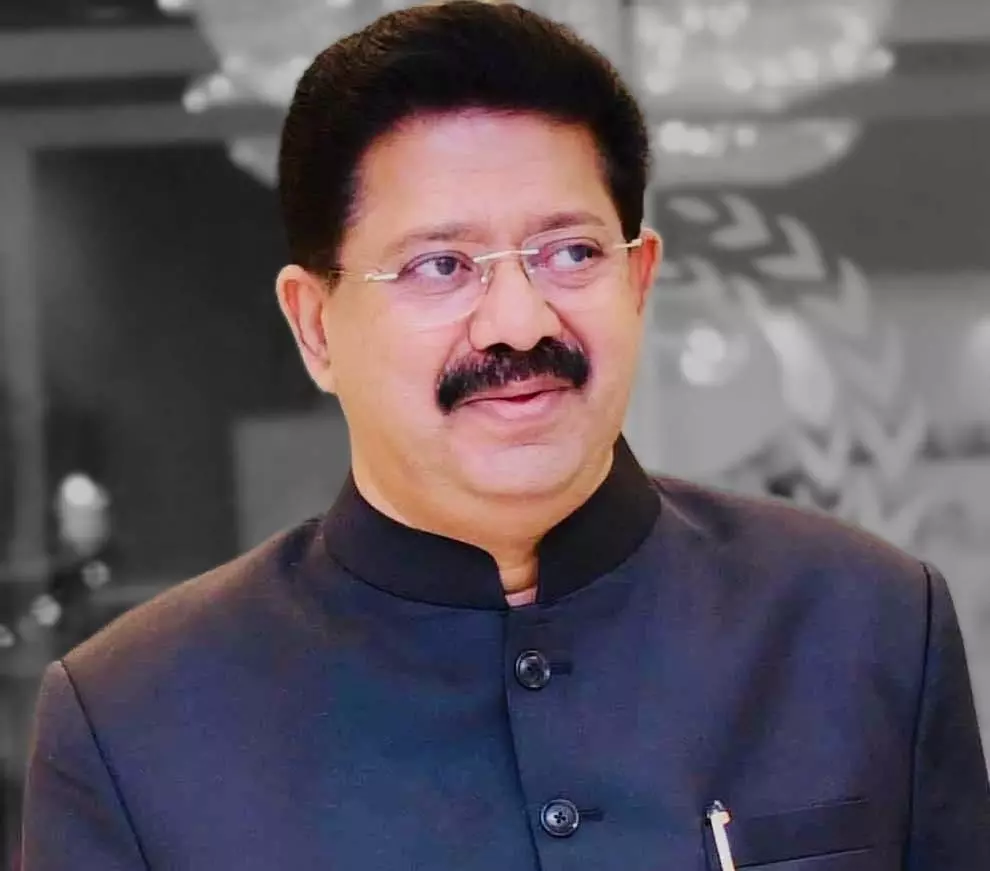
The future of Oil and Gas - an industry that is not going to die anytime soon
text_fieldsIn an era where the clarion call for the end of oil rings louder with each passing day, the question of what lies ahead for the oil and gas industry remains a topic of intense debate and speculation. Contrary to the doomsday predictions, the demise of oil is not as imminent as some would have us believe. Leading the charge in the search for answers and innovations is Dr. Mathew M. Samuel, a luminary in the realm of oilfield chemical technology.
With an illustrious career that bridges the gap between academic excellence and groundbreaking practical innovation, Dr. Samuel has been at the forefront of developing technologies that significantly enhance oil production efficiencies. His expertise has earned him widespread recognition, not only within the scholarly circles, where his contributions to research and academic articles are highly esteemed, but also in the realm of patent innovation, where his inventions are setting the stage for a revolution in oilfield practices.
Dr. Samuel’s work is a testament to the power of combining scientific knowledge with practical applications. His key patents, as documented in the Google Patents and other databases, illustrate a relentless pursuit of solutions to some of oil industry’s most complex challenges. These patents are more than mere legal formalities; they embody a vision for a future where oil production is both more efficient and sustainable. As we navigate the evolving landscape of the oil industry, Dr. Samuel’s influence shines as a beacon of progress, guiding us toward a path of sustainable and efficient oil production methods.
I recently had the chance to have a detailed talk with Dr. Mathew M. Samuel. We talked about his thoughts on what's next for the oil and gas industry and looked closely at his groundbreaking work in oilfield chemicals. It was an insightful discussion about the future possibilities in energy, guided by Dr. Samuel’s innovative contributions.
Mansoor Palloor interviewing Dr Mathew Samuel (left)
Q: Given your extensive experience in the oil industry, how do you envision the transition from fossil fuels to alternative energy sources unfolding over the next few decades?
Ans: In the oilfield, a plan for the next 25 years is considered as a short-term plan. By 2050, the world may have close to 2 billion more people, and the energy demand will increase by about 35%. Currently on an average, only about 7% of the families in India and China can afford to have a motor vehicle in their home, and this will easily double in the next couple of decades. There is no doubt that nearly 75% of the world’s energy will be still coming from fossil fuels (oil, gas and coal) and is the single largest source of energy. It is very difficult to replace the hundred million barrels of oil the world is consuming every day unless something ground-breaking evolves and is established worldwide. It is not easy to get the acceptance and scaleup of any new energy in a couple of decades, even if the government pushes to regulate the fossil fuel consumption and limit the manufacturing of equipment that run using oil and gas.
As you can see in the plot below, even with all the promotions in the last 25 years, wind, solar, the modern biofuels, and renewables, have a total market share of less than 5% while just traditional biomass including wood and cow-dung patties has a market share of nearly 6%. The hydro-power and nuclear each are contributing nearly 6%, and the world is not ready to quit the usage of fossil fuels.
If fossil fuel companies or oil countries cut the world supply by 5%, that is from 100 million barrels to 95 million barrels, there will be a big shortage of energy and we end up using oil from our strategic reserves which is not a smart idea. This will result in the world economy to go upside down and the price of oil will double or triple in a matter of weeks, and that is the hidden power of Saudi Arabia controlling the world. More people will die in a short span of time because of no air conditioning or no heating due to the lack of energy compared with the death predicted because of the “notorious” greenhouse effect caused by increased concentrations of Carbon dioxide in the atmosphere.
The bottomline is that replacing energy from fossil fuels with an alternate source is not easy and will take at least a century unless some genius comes up with some magical energy source. The only source of energy that I can think of replacing fossil fuel at least partially is nuclear energy, which has its own merits and demerits.
Fig 1. World Energy Sources
If we look at the proven oil reserves today, it can last only for the next 70 years if no additional reserves are coming into play. In the last 5 decades, the consumption of oil and gas is about half the amount of the new addition to the reserves, which is very encouraging. But to continue this trend, the Oil and Gas operators and service companies work in hand in hand with the governments in exploration and research. I believe that we have not so far tapped into more than 5% of the Oil & Gas in the ground, especially the fossil fuel below the ocean.
Depending on the country, 60 to 90% of the electricity is derived today from fossil fuels. Thus transitioning to the electricity the way it is today is not a solution for going away from fossil fuels, or to achieve de-carbonization or net zero. Minimizing waste, using less and increasing efficiency are a few smart ways to achieve “near net zero” rather than net zero.
Fig-2. Source of Electricity in Countries of interest
Nuclear energy or some similar source could eventually replace fossil fuel at least partially, but the concern is how we can replace the source (raw materials) for the thousands and thousands of products essential for human life that we derive out of crude oil.
Q: What are the biggest challenges the oil and gas industry faces in its journey towards sustainability, and what solutions do you believe are key to overcoming these challenges?
The biggest challenge that the oil and gas industry faces is the fear of an environmental calamity in the minds of people that activists are planting. To keep up with the fossil fuel demands, governments and corporations need to invest in research to extract oil and gas from hotter and deeper wells including the explorations in the ocean. With the negative publicity about Oil and Gas, companies and organizations are not investing in Oil and Gas research and thus, we will be challenged to do more with less.
Q: How do you foresee the shift to alternative energy impacting global economies, especially those heavily reliant on oil and gas revenues?
There is absolutely no worry for oil and gas companies for the next couple of centuries at least. It is difficult to replace the 130 million barrels of oil required by 2050 with new energy. Also, it is difficult to find a source for all the raw materials and products derived from crude oil. Countries that depend heavily on oil and gas as a major resource for financial freedom, will cut fossil fuel production to lower inventory and thus increase pricing artificially. This strategy works well today for the oil countries to balance oil pricing, and will continue to practice if they are forced to follow certain regulations that could affect their livelihood.
Q; What advice would you give to young scientists and engineers who are interested in contributing to the future of energy beyond oil?
There will be a time when fossil fuel will be affordable only to the rich and powerful. With that in mind, scientists, engineers and governments need to look for alternate sources of energy, though it is not an easy task as one is to assume. Understand that the world has an infinite storage of fossil fuel, but the easy-to-get sources are already on the way to depletion. There is a big room of opportunity for research in finding methods to extract oil and gas from deeper and hotter wells, and also to increase the recovery factor. The efficiency of machines that use less energy to perform the same task is not a “use-less” project. In summary, while we explore the new energy options, we should find ways to extract the last drop of oil from the ground, and also find ways to use those efficiently.
Q: Your work has significantly influenced the oil industry. Could you share your perspective on the role of innovation in achieving sustainable oil production?
I joined the oil patch almost 30 years back from doing research in a medical college and was working on muscle contraction and blood coagulation. My major contribution in the Oil and Gas industry is the introduction of “Visco-Elastic Surfactants” (VES) as a gellent to transport sand and ceramics in fracturing (fracking) applications. Until then, fracturing used Guar gum and chemically modified versions as a gelling agent for more than half a century. Interestingly, India exports more than 90% of the world production of guar and is used both in the oil and food industry. Coincidently, I, a person of Indian origin developed a product that can replace guar gum.
Guar is polymer-based with a molecular weight in the order of millions. When this is injected to a well, it can cause damage to the rock near the flow path and inhibit production, whereas the new VES product that I have developed used a low molecular weight surfactant derived from the canola oil and is extracted out of a genetically modified canola oil plant.
This product was first introduced in Kuwait and later in Saudi Arabia. Because of the low molecular weight of the VES and its breaking ability even without a breaker, it received very good popularity in the oilfield. Many researchers from Universities and Corporations jumped on the VES band wagon and successfully developed and used a series of products for several oilfield applications.
Production results from wells treated with these VES technologies are much better than wells treated with conventional guar-based fluids. The good news is that Kuwait Oil Company even recalculated their oil reserves based on the new recovery factor for their reservoir based on the results from well treatment using this non-damaging non-polymer system. In a nutshell, innovation has an enormous role in sustainable oil and gas production, and slowing down of fossil fuel innovation due to the push towards alternate sources of energy can lead to serious consequences that cannot be reversed in our lifetime.
Q: How do you see the intersection of academia and practical application in your field?
Corporations are more focused on the application of a product or technology in the field while universities generally are involved in fundamental research. Understanding the fundamentals is key in developing a fool-proof product, and academia fill this gap.
We are all hearing the consequences of a Covid-19 vaccine development and its use without much of a fundamental understanding of short-term and long-term effects on human body. This is a prime example of the requirement of serious fundamental research and understanding before commercializing any product to the market.
Q. What drives you personally in your pursuit of excellence?
My definition of personal excellence involves setting up high standards, believing in ourselves, developing skills continuously and focusing efforts effectively. To excel, we need to maintain integrity, embrace accountability, and exhibit intellectual curiosity. We can create a culture of excellence within our organization by communicating the vision clearly, focusing resilience to challenges and promoting collaboration among the team. We need to recognize our strengths and limitations, set realistic goals, challenge ourselves out of our comfort zones and finally be with the best people to achieve our personal excellence. Personal excellence is a life-long journey of self-improvement and growth that requires self-evaluation, commitment and discipline.























